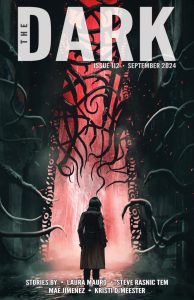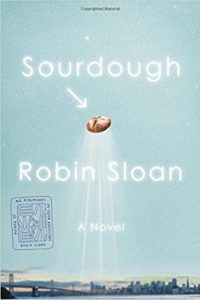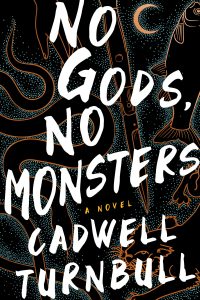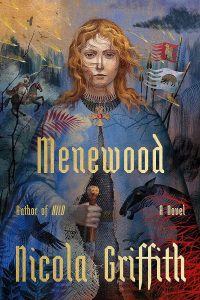The Dark, The Sunday Morning Transport, and Reactor: Short Fiction Reviews by Paula Guran
 The Dark 8/24, 9/24
The Dark 8/24, 9/24
The Sunday Morning Transport 7/21/24 – 9/15/24
Reactor 7/24/24 – 9/4/24
Both originals in The Dark #111 are centered on homes. The haunting “Once There Was Water” by Katie McIvor is really two tales. One is about the past of the fenlands where children are transformed into darkly furred creatures with webbed, clawed hands; the other about a time closer to our present when the fens have become farmland, garden, and pond. Nevertheless, “a presence as old as the earth, or as old as the water” still exists there. And some children of the big house located there still are claimed by it. Rosalía returns “to her ancestral home, one hundred and eighty-four years after she left” in “Bite Me, Drink Me, Eat Me” by H. Pueyo. The place is different now, but still maintained by Fishhook, a most faithful retainer. Rosalía does as her “people always did: changing as the times changed, disappearing into obscurity when others noticed they were not aging, resurfacing again decades later.” But they find they need each other to successfully survive.
The Dark #112 features two originals that also focus on family. In Laura Mauro’s compelling “Wiremother”, Helena has a very strange mother – one of gears and wires hidden in the closet of Home. But Helena is 16 now and in love with Alanna, with whom she finally spends a night. Her action brings changes. Stranger still is the world of “the Bind” in Mae Jimenez’s fascinating and caliginous “The Ribbon Rule”. When a child turns 13, their lips are sewn shut and they never speak again. But Rosa chooses lace rather than the usual silk. She learns fighting against the norm has consequences.
The Sunday Morning Transport’s September 15 offering is based on the myth of Eurydice. “There Is Music After This” by Martin Cahill is a beautiful story about how those without hope can give hope to others. F. Brett Cox’s “Sure Shot” (9/8) is an entertaining epistolatory counterfactual tale about Annie Oakley’s volunteer regiment of “fifty lady sharpshooters” who helped win the Spanish American War but are rejected in 1917 for similar service in the impending war against Germany.
“The Memorial Tree” by Alaya Dawn Johnson (9/1) is a moving story set in a war-torn future. Kixue and her brother Eko are assigned a farmhouse at the edge of Repopulation Zone 2894A for their home. The “memorial tree” near its door is a rare survivor of an experiment that combined DNA from the dead with plant material. It so haunts the place that Kixue wants to relocate, but Eko – the brother she promised their dead mother she would protect – likes the tree. An eerie connection with the past drives Kixue’s final decision
David Bowles two stories – “Dismantling” (8/25) and “Relovation” (8/21) – are set in a universe in which a being called “the Midwife” appears out of nowhere to intervene and bring inhabitants together while respecting individuality. But she cautions: “Though it’s been tens of thousands of years since I accepted this task, you should avoid the temptation to see me as some gentle Indigenous woman wielding ancient magic to guide the universe toward a mystic, transcendental birth.” There a much bigger story here these succinct tales touch on but don’t explore.
“The Eleventh & Three-Quarters Hour” by Leslie What (8/18) is a terrific tale of transformation and acceptance. Gabby’s mother warned her “that most people began falling apart in their seventies.” I’m not sure Gabby is even that old, but she is falling to pieces: first a thumb, then a finger, a toe; joints loosen, a shoulder goes. “Oddly enough, nothing hurt. No blood, no pain, no numbness, no tightness nor tingling… just that irksome feeling you sometimes get, like when you’ve left something in the car but can’t remember what it was or why you’d need to retrieve it.”
Lauren C. Teffeau’s “Plastic Hunters” (8/11) takes place in the near future after a “moratorium on the manufacture and production of plastic materials” has been imposed. Malcolm, Dylan, and their crew are fishing for polymers and their nets are filled with the valuable bounty. Things take a negative turn when they snag a huge sheet of that turns out to be more than merely cast-off plastic. Brief but thought provoking.
Nearly every rental has one or more ghosts in “Unfinished Basement” by A.R. Capetta (8/4). Kar and Oak feel lucky to have found a place without any. But “that doesn’t mean nothing lingers…. Things that wouldn’t die could be much more dangerous than things that did.” Soon their new home is affecting them individually and wrecking their relationship in weird ways. Their real estate agent and her helpful ghosts come to the rescue. Far more fun than frightening.
In “Father Ash” by Rachel Hartman (7/21), Ash’s mind is both melting and hardening as he gazes at an unfamiliar face in his mirror. The face belongs to his witchy daughter Meg, the only person who will take the dying man back to the place he was born. Truths are discovered and secrets revealed in yet another captivating tale of transformation.
As usual, Reactor offers tip-top fiction. K.J. Parker’s “Set in Stone” (9/4) is a delight before ending on a somber note. Pleased with a mural of a battle he has commissioned, the king grants an artist’s wish to appoint his nephew to the palace guard. The king then wants another battle scene. But there has been no battle, so what can the artist depict? The nephew knows the truth about the king and his battles, but it is a truth the artist does not wish to hear.
The fire witch Kosara is without funds and stuck in Chernograd in the engaging “Ace Up Her Sleeve” by Genoveva Dimova (8/28) She needs to defeat the tsar of monsters – who wants her power – once and for all. Kosara’s played a card game with him five times before and lost, but takes a chance on a sixth.
Amal Singh’s “The Gulmohar of Mehranpur” (8/21) is a rich and well-told tale of the Nawab of Mehranpur. He fears insignificance, threats to his small district-state, the tyranny of the shah, and old age – So he rages. Now his pride, the Gulmohar – a once-majestic tree in his orchard – is dying. Disappointed in a meal purchased to bring him eternal youth, he unwittingly brings resolution. A far less positive outcome is presented in “Before the Forest” by Kell Woods (8/14). Junia, a young witch – already abused at home and overworked – must cope with the siege of her city of Breisach. Cruelty cannot be defeated with goodness in this darkly rewarding story.
Nancy Kress’s “The Alice Run” (8/7) is far more complex than one might expect from a short story. Comatose Letitia undergoes a medical procedure that uses childhood stories to bring a patient back to consciousness. Things do not go as they have with previous patients, but slowly some very complicated memories are filtered through Lewis Carroll’s Alice in Wonderland. A brilliant tale that turns into something of an espionage thriller as well as sorting out a personal relationship
In “The Angel’s Share” – another story by Martin Cahill (7/24) – Margaret’s home has been infested with 32 angels for eight months. This is too much of a good thing, so Jude, an exorcist, is hired. But the radiance of angels is determined to stay, and Margaret is not ready to give up the source that feeds the angels. It takes more time for her to accept what needs to be done. An effective story about surrendering the past and accepting the future.
Recommended Stories
“There Is Music After This”, Martin Cahill (The Sunday Morning Transport 9/15/24)
“The Alice Run”, Nancy Kress (Reactor 8/7/24)
“Set in Stone”, K.J. Parker (Reactor 9/4/24)
“The Gulmohar of Mehranpur”, Amal Singh (Reactor 8/21/24)
“The Eleventh & Three-Quarters Hour”, Leslie What (The Sunday Morning Transport 8/18/24)
Paula Guran has edited more than 40 science fiction, fantasy, and horror anthologies and more than 50 novels and collections featuring the same. She’s reviewed and written articles for dozens of publications. She lives in Akron OH, near enough to her grandchildren to frequently be indulgent.
This review and more like it in the November 2024 issue of Locus.
 While you are here, please take a moment to support Locus with a one-time or recurring donation. We rely on reader donations to keep the magazine and site going, and would like to keep the site paywall free, but WE NEED YOUR FINANCIAL SUPPORT to continue quality coverage of the science fiction and fantasy field.
While you are here, please take a moment to support Locus with a one-time or recurring donation. We rely on reader donations to keep the magazine and site going, and would like to keep the site paywall free, but WE NEED YOUR FINANCIAL SUPPORT to continue quality coverage of the science fiction and fantasy field.
©Locus Magazine. Copyrighted material may not be republished without permission of LSFF.







